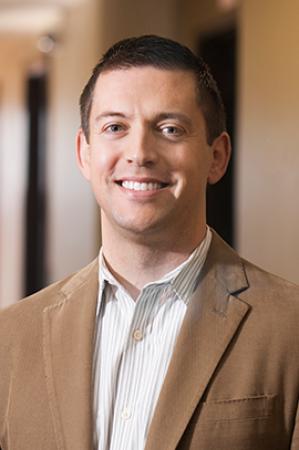By Michael Pearson
Personalized medicines that harness the power of our own immune cells to beat back advanced cancers offer great promise, but also raise concerns about how patients will pay for these costly therapies. A new paper from the Georgia Institute of Technology shows some patients are turning to crowdfunding.
That troubles Aaron Levine, a bioethicist in the School of Public Policy. He has written a new paper in The Lancet Oncology’s August 2019 issue examining the use of crowdfunding for a particular kind of cell-based cancer therapy.
“It’s kind of a canary in the coal mine situation,” he said. “These are highly effective therapies for very sick patients. But if patients have to deal with costs in this way when the number of people undergoing these treatments is small, what will happen when these therapies become more broadly available?
Research is Part of NSF-Funded Center for Cell Manufacturing Technologies
Levine’s paper, published online July 29, 2019, examines the growing use of crowdfunding to help pay for recently approved chimeric antigen receptor (CAR-T) cell therapies for two specific types of blood cancer, and even for expenses related to access to clinical trials of the treatments.
Levine studies ethical and policy issues surrounding the development of cell therapies as a researcher associated with the NSF Engineering Research Center for Cell Manufacturing Technologies (CMaT), which is led by Georgia Tech. The center seeks to help transform cell-based therapeutics to expand the industry and lower costs.
His paper with graduate student Linda D. Ho and undergraduate research assistant Sarah O. Oso—funded by the NSF’s initial grant of nearly $20 million that established CMaT in 2017—is among the first to examine crowdfunding campaigns for FDA-approved cell therapies and high-quality clinical trials advancing this field.
“We’ve heard a lot about patients using crowdfunding to raise money for unproven stem cell-based treatments or other treatments not supported by scientific evidence,” Levine said. “What’s different here is that patients are turning to crowdfunding to support their participation in clinical trials and to gain access to an FDA-approved and often highly effective therapy.”
Ho, a second-year master's student in the School of Public Policy, said medical crowdfunding is a bandage covering up a important systemic problem in our health care system.
"On an individual level, we can see that crowdfunding campaigns can work, and we can immediately see where the donations go," Ho, a Los Angeles resident, said. "But these campaigns represent only a fraction of the people who need help, and crowdfunding itself does not treat the underlying problem."
Paper Looks at CAR-T Crowdfunding Campaigns
Although sponsors of clinical trials typically provide treatment free of cost to patients, CAR-T trials often require participants to travel long distances. Because of concern about side-effects, they also must remain near the medical center that provided the treatment for several weeks, inflating costs.
Once approved, these therapies also are expensive, as much as $475,000. While insurance covers most of this cost for many patients, some still need help paying deductibles, co-pays, and coinsurance, as well as non-medical expenses.
Levine’s study found 143 campaigns associated with CAR-T therapies, with the average campaign aiming to raise $61,622 to help pay for everything from medical expenses to travel costs, lost wages, and living expenses.
The most successful campaigns were those shared most broadly on social media. Facebook users shared the three largest campaigns, which accounted collectively for just over half of the $1.9 million raised, more than 5,000 times each.
Levine also warned crowdfunding—which he said tends to favor people with large, well-heeled networks—might not only leave less well-connected patients in the cold, it could potentially skew the results of clinical trials by shifting the makeup of patients participating in them.
“As CAR-T cell therapy expands and moves from a last-resort therapy closer to the front-lines of cancer care, clinical trials will increasingly compare these novel cell therapies versus the existing standard of care,” Levine said. “These trials will yield more valuable information if the research participants are representative of the broader patient population, but the need for many patients to crowdfund to access such trials raises questions about how representative the clinical trial population will be.”
Possible solutions
Policy discussions about ways to handle crowdfunding in a medical context are still in their infancy, Levine said.
But he has suggestions about what could be done to help. One key is for sponsors to do more to cover patients’ non-medical expenses, such as travel and housing. Researchers should similarly provide their patients with more information about ways to defray costs associated with treatment, he said.
Over the long term, finding ways to make CAR-T cell care more widely available, cheaper, and carry less risk of side effects would also make a significant contribution to solving the problem, Levine said.
Fortunately, that is precisely what CMaT is seeking to do.
The School of Public Policy is unit of the Ivan Allen College of Liberal Arts.
Media Contact
Michael Pearson
michael.pearson@iac.gatech.edu
404.894.2290
Keywords
Latest BME News
Jo honored for his impact on science and mentorship
The department rises to the top in biomedical engineering programs for undergraduate education.
Commercialization program in Coulter BME announces project teams who will receive support to get their research to market.
Courses in the Wallace H. Coulter Department of Biomedical Engineering are being reformatted to incorporate AI and machine learning so students are prepared for a data-driven biotech sector.
Influenced by her mother's journey in engineering, Sriya Surapaneni hopes to inspire other young women in the field.
Coulter BME Professor Earns Tenure, Eyes Future of Innovation in Health and Medicine
The grant will fund the development of cutting-edge technology that could detect colorectal cancer through a simple breath test
The surgical support device landed Coulter BME its 4th consecutive win for the College of Engineering competition.








